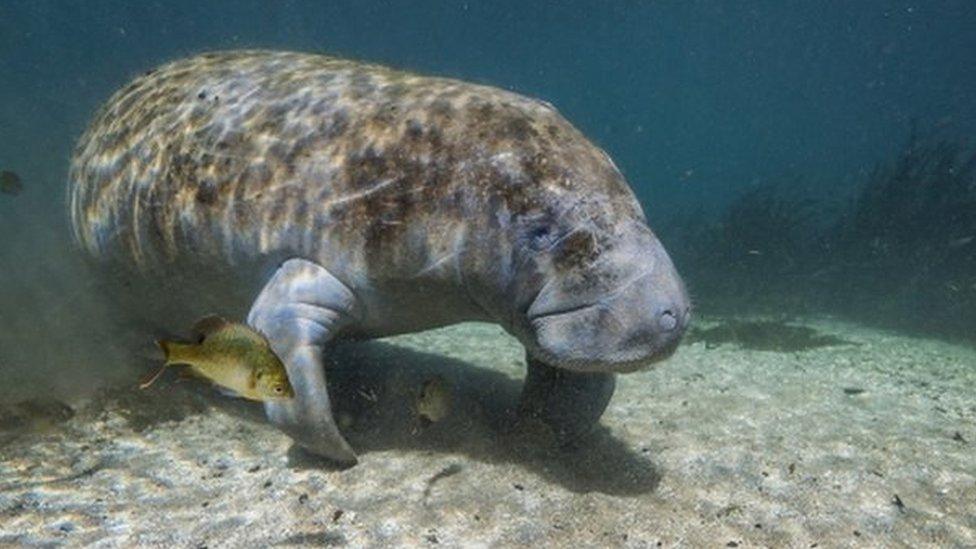Tracking Tico: Manatee rescued after frantic search
- Published
Watch: Tico swimming with his tracking device before his release in July
A runaway manatee named Tico which gave international rescue teams the slip for two months has been caught after a frantic international search.
Experts had feared for Tico's safety after he embarked on an unusual journey taking him more than 4,000km (2,500 miles) from the Brazilian waters where he had been released into the wild.
An operation that spanned multiple countries and sent rescuers scampering on planes, boats and cars in a race against time to save Tico's life had a happy ending on Monday when he was finally rescued off Venezuela's La Blanquilla island
It was veterinarians from Venezuela's environment ministry who finally managed to track the manatee through GPS and catch up with him.
It is not the first time Tico has been rescued. In October 2014, when he was a newborn, he was found stranded on Praia das Agulhas, in north-eastern Brazil, and taken in by Brazilian conservation NGO Aquasis.
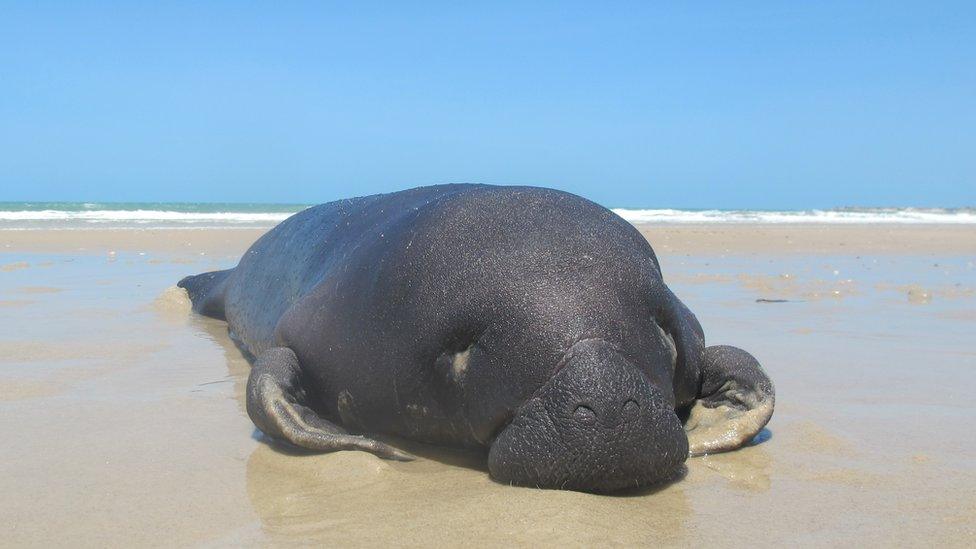
Tico got stranded on a Brazilian beach as a newborn
His most recent adventure started on 6 July when, after seven years of rehabilitation, he was released into the wild in waters off Icapui, in north-eastern Brazil.
But, just a few days after Tico had entered deep waters, his previous caregivers began to fear for his survival.
Manatees feed on plants found in shallow waters, and with Tico swimming further and further into the ocean, it was decided he should be be rescued.
But Tico took off, and just kept going. Moving at a blistering pace, he blew through five Brazilian states, heading north, and leaving the Aquasis team literally chasing his tail, to which a transmitter had been attached.
In late August, the transmitter came close enough to the surface to signal that it was off the coast of Tobago - a part of the southern Caribbean nation of Trinidad and Tobago (T&T).
"We thought that he was dead, or that it was just the equipment that showed up," says Camila Carvalho, one of the people who received the location notification thousands of kilometres and a time zone away, in Brazil.
Ms Carvalho and her team at Aquasis started contacting people in T&T to help find out whether Tico was alive.
A fisherman jumped into action. Even with the location information, it took him about four hours of searching to find the tracking device - and the animal it was attached to.
His mobile phone video gave the team in Brazil the news they had been hoping for: Tico was alive.
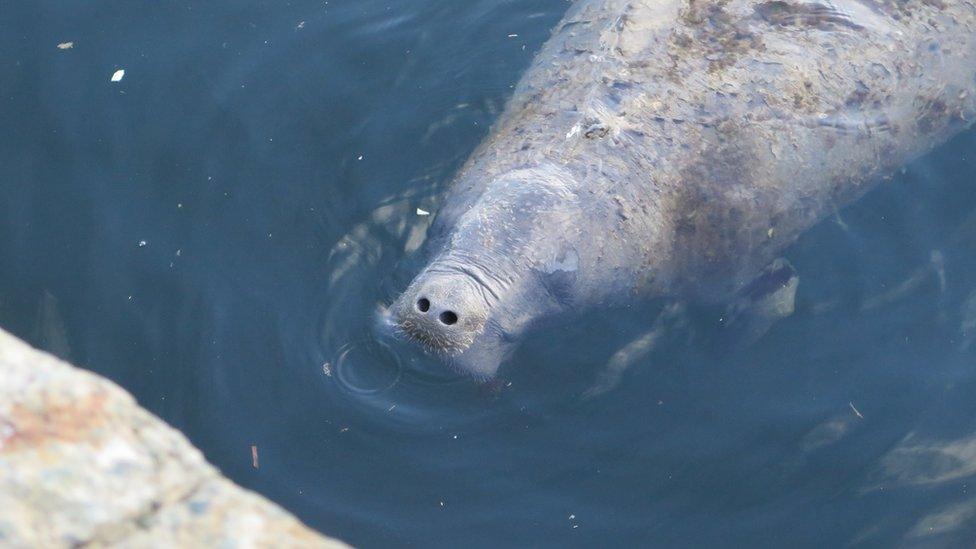
Tico was spotted by a fisherman in Scarborough port
But relief at locating him swimming close to the edge of the wall at Scarborough Port on Tobago's southern shore soon turned into worry, says Dr Reia Guppy.
"The problem then became he's right where the ferry docks, and the ferry was going to dock in maybe about an hour," explains the assistant professor at the marine sciences department of the University of Trinidad and Tobago.
After commandeering a fishing vessel, Dr Guppy's team was able to get Tico out of the danger area. But Tico swam off, again eluding those trying to rescue him.
Ms Carvalho describes their search for Tico as often resembling a chase scene in a film, with the team "running after Tico with a car, driving through these different cities, and trying to get a boat every time".
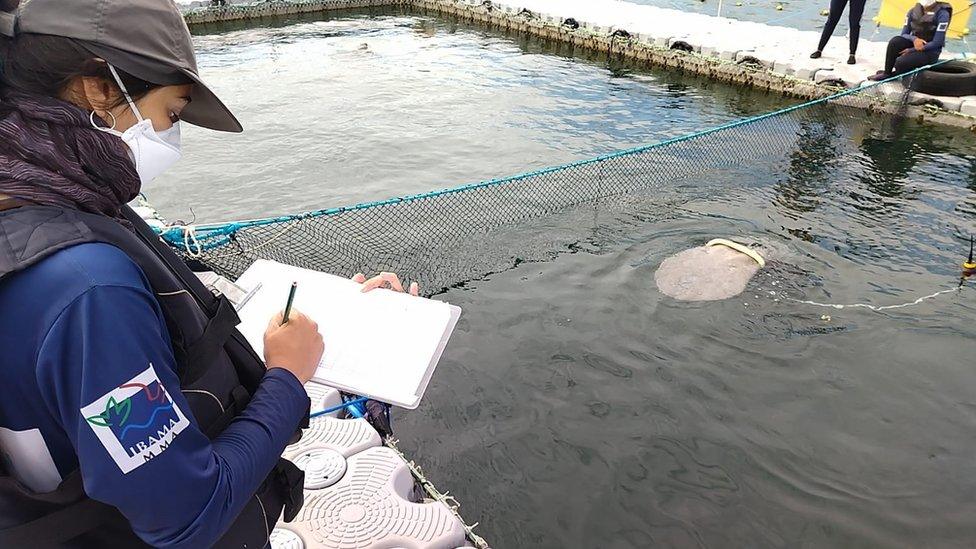
Camila Carvalho is part of the team which cared for and released Tico
She says that sometimes they were trying to move faster than Tico to gain an advantage so they could try to get a boat to chase him. But even when the team got access to a plane, that still was no match for the manatee.
After passing Amapa, Brazil's most north-easterly state, Tico entered international waters.
He dashed through the waters of French Guiana, Suriname, and Guyana, before reaching Tobago. After the encounter with Dr Guppy and her team, he made his way to neighbouring Venezuela, where he was finally rescued on Monday.
"Tico has clocked over 4,000km, which is amazing, flabbergasting and a novelty," says Dr Guppy.


In comparison, a study - published by Flora and Fauna International in January - of six manatees released in the north-eastern section of Brazil, found the longest distance travelled from the coastline upriver was 14.24km, and up to 930m from the shore.
Tico has been taken to a private sanctuary for marine animals on Venezuela's Margarita Island where he is being nursed after his epic voyage.
Ms Carvalho and others at Aquasis are now are arranging with Venezuelan authorities to have Tico brought back to Brazil.
And while Tico is now safe, the frantic search has cast a spotlight on the threats facing manatees in Brazil.
These aquatic herbivores - which are listed as endangered in Brazil and classified as "vulnerable" by the International Union for Conservation of Nature - usually give birth in Brazil's tropical mangroves.
But with mangroves being destroyed as developers build on highly sought after coastal strips, manatees are turning to the sea to give birth.
"When they do that, the calf is vulnerable because of the waves," Ms Carvalho told BBC News. "We rescue a lot of newborns, and sometimes we are not able to see the mum, to try to return the manatees to their mother."
That is why NGOs like Aquasis not only look after stranded and injured manatees but also campaign for the conservation of the ecosystems in which these mammals live.
- Published17 August 2022
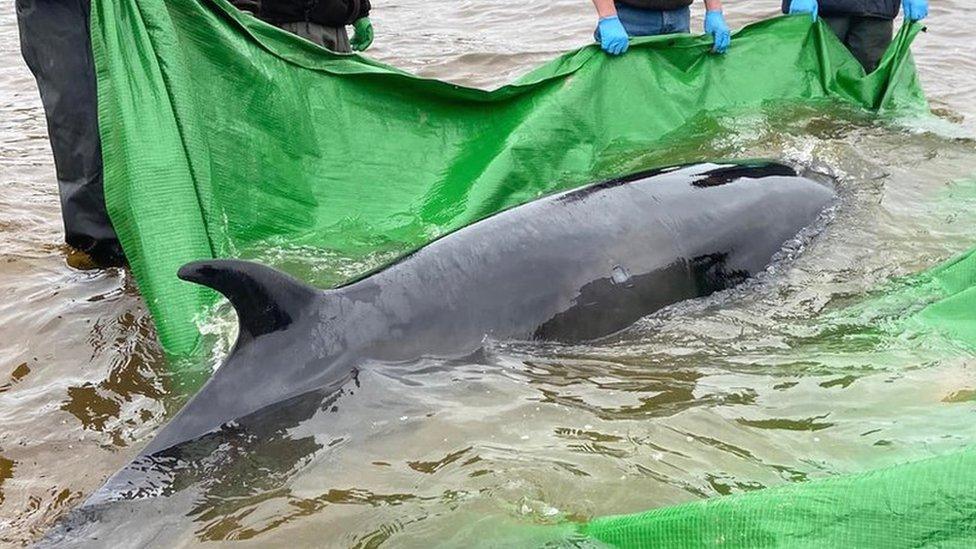
- Published7 August 2022
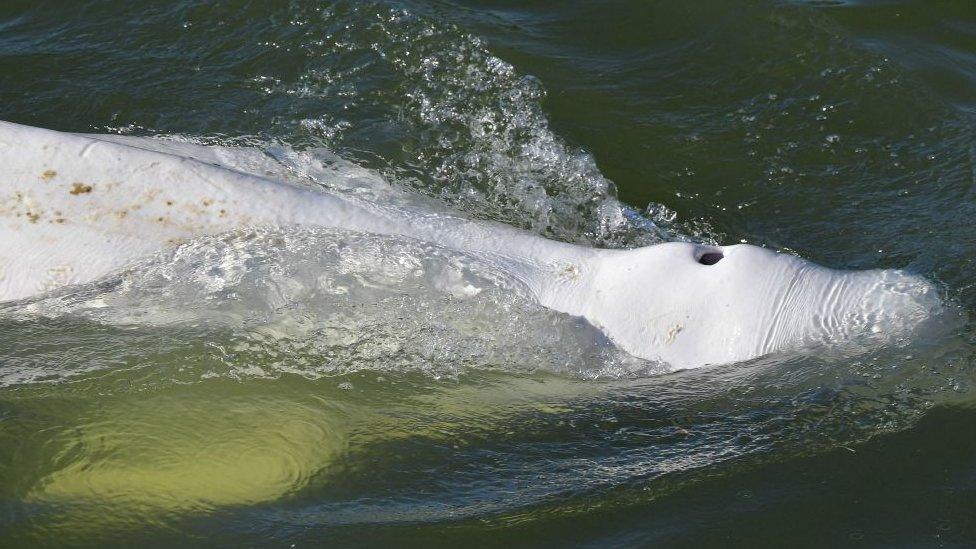
- Published12 July 2021
